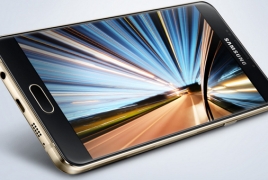
Samsung Electronics Co. reported Thursday, July 28 forecast-beating earnings results that were the best in two years as consumers snapped up its Galaxy smartphones, in a sign the company is getting its mojo back while rivals fail to deliver new smartphones, the Associated Press reports.
The South Korean company forecast that its performance will continue to be "solid" during the rest of the year because demand for its lucrative components, such as high-end displays called OLED that are used as screens for premium smartphones, is expected to increase "substantially." It expects to spend more, however, on mobile marketing of its upcoming large-screen smartphones, to be announced next week, which Samsung typically uses to distract consumers from new iPhone launches by Apple.
Samsung, the world's largest smartphone maker, said its April-June net income rose 2 percent over a year earlier to 5.85 trillion won ($5.17 billion), compared with 5.75 trillion won a year earlier.
That was slightly higher than forecasts, which have been revised upward in recent months to reflect stronger-than-expected sales of the new phones. Analysts had forecast net income of 5.79 trillion won, according to FactSet, a financial data provider, AP says.
Sales rose 5 percent to 50.94 trillion won ($45 billion), while operating profit surged 18 percent to 8.14 trillion won ($7.19 billion), in line with the company's guidance earlier this month.
Samsung beat forecasts even as growth in the overall smartphone industry slowed. Its rival Apple, the world's second-largest smartphone maker, is struggling to boost iPhone sales and reported a 27 percent quarterly drop in profits.
Samsung's mobile business reported 4.32 trillion won ($3.82 billion) in operating income during the three-month period, its best quarterly performance since the second quarter of 2014.
Samsung estimates it shipped between 75.6 million and 78.3 million smartphones during the quarter, about twice as many as Apple's 40.4 million iPhone sales.

